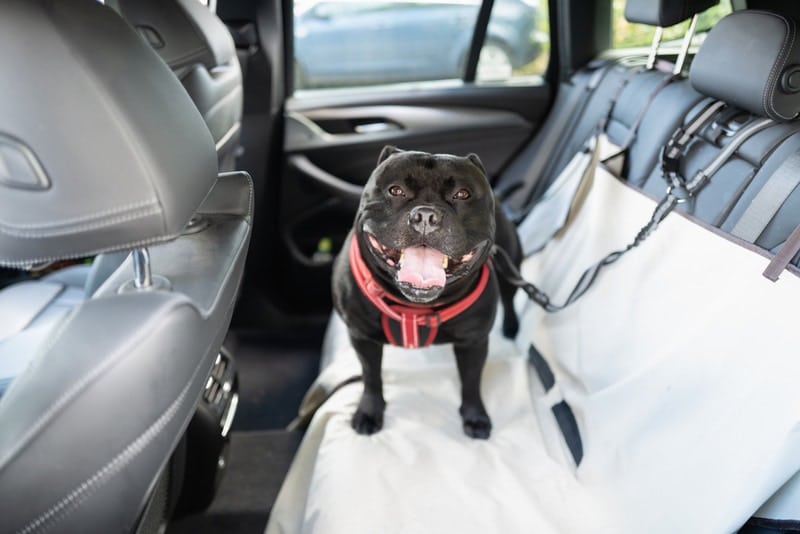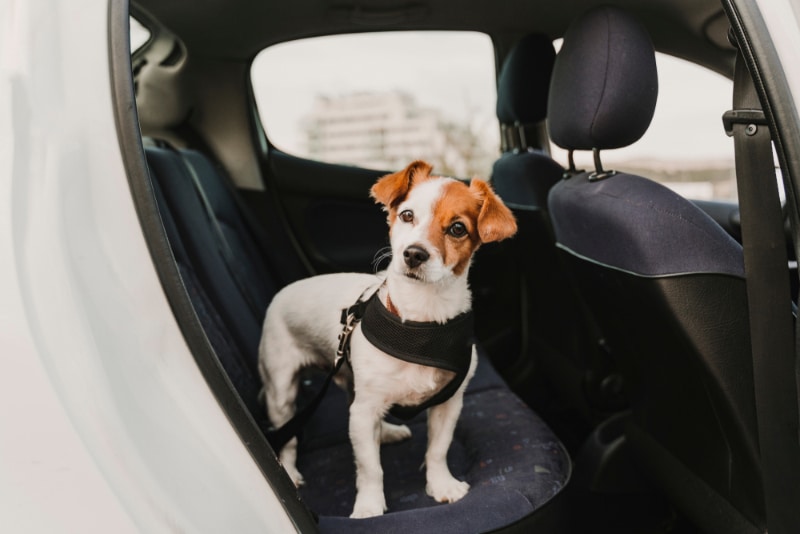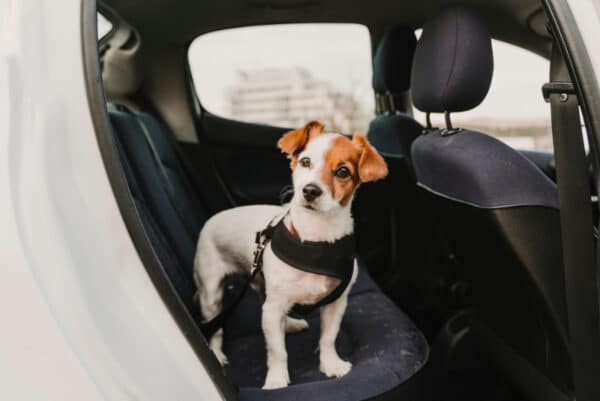Disclaimer: The content of this article is for informational, educational, and/or entertainnment purposes only and not for the purpose of providing legal advice. Use of and access to this article or any information provided or contained within does not create an attorney-client relationship. The opinions expressed here are the opinions of the author and do not reflect the opinion or viewpoint of Dogster. If you have a legal issue regarding your pet, contact your own attorney.
I live in Miami Beach, where the temperature is often in the high 90s, with relative humidity of 95 percent to 100 percent. For eight or nine months each year, it really is like a sweat lodge outside. I’ve been taking care of dogs for years, and I find it absolutely unthinkable to leave a dog in a parked car, even with the air conditioning on.
We’ve probably all known someone who does this and won’t be swayed. It’s dangerous, because leaving the air conditioning on requires the engine to be running, which means that the car and the dogs can be easily stolen. Also, if the air conditioning malfunctions or the car is towed, the animals will suffer — or, worse, die of heat exhaustion.
There are so many horror stories about people, dogs, and other animals that have been left to die in hot, parked vehicles. Why don’t people learn?
It’s illegal to lock an animal in a parked car or other vehicle in 14 states: Arizona, California, Illinois, Maine, Maryland, Minnesota, Nevada, New Hampshire, New Jersey, New York, North Dakota, South Dakota, Vermont, and West Virginia. Although the types of animals that are protected vary, it’s obviously encouraging news that our pets are protected.
However, in order for the law to be violated, the animal’s life must be in danger from the conditions of the confinement, which include:
- Extreme hot and cold temperatures
- Lack of ventilation
- Failure to provide food and water
- Other circumstances that could reasonably lead to suffering, disability, or death

People who knowingly violate the laws can be fined and even incarcerated. In New York, the fine for the first offense is $50 to $100. The steepest fines are proscribed in Vermont, where you can be imprisoned for not more than a year and fined up to $2,000. In West Virginia, you can be fined $300 to $2,000 and sentenced to up to six months in jail. North Dakota, Maryland, Nevada, and South Dakota do not provide a penalty for violators.
Various “rescue provisions” are provided for 11 of the 14 states if a protected animal is found locked in a vehicle. Most of the provisions allow an authorized agent to take any action necessary to rescue it, such as breaking the window. In New York, the rescuer is specifically protected from civil and criminal liability “if they take such action in reasonably good faith.”
In Dogster’s Laws and Legislation forums, Dogster reader Ava wrote of her experience in Virginia. She and her fiance left their two dogs in their car for approximately 20 minutes while they went shopping at Walmart. As they returned to their car, a police officer approached and questioned her fiance about the dogs. Someone had called the police. Ava stated that it was a “relatively” cool night — although humid –- and that she thought the dogs were not in any danger. And she said that the officer did not give them a warning –- he “just drove off after her fiance explained to him that the dogs were just fine and dandy.”
A lively discussion ensued and many readers responded. A good number of readers agreed with Ava, basically stating that they would get mad, too, if someone reported that their dogs were in danger when apparently they were not. Other readers took the position that if it was hot, they would report it. One reader was ticketed $150 for leaving his dogs unattended in the car, although he parked the car at a window where he could watch them. Overall, it appeared that most readers felt the owner of the dogs should decide whether it is safe to leave the dogs unattended.
I researched the laws of the town of Farmville, Virginia, where Ava’s incident occurred, and the only law related to dogs was a leash law. Still in search of a specific answer, I finally found the Farmville Communications Center, where the animal control officers are located. I asked if there were any laws that made it illegal to lock dogs in a car for a 20-minute shopping visit. I was told specifically -– twice, in fact -– that “as long as there is water and adequate ventilation, it is okay.”
Ava did not say whether she left water in the car for her dogs. Nor did she mention whether the vehicle was well ventilated. If she did not leave water in the car, then she did violate the local law as reported by the animal control officer. However, there is no stated penalty for violating this law.
Ava also commented, “I’d never expect someone to call the police about dogs in a car at nighttime. Who does that? Really?” Ava and her fiance obviously felt comfortable leaving her dogs in the car for a short while. However, the anonymous person who reported the situation to the police clearly didn’t feel the same way. Since the caller did not enter the car or attempt a rescue, he or she did not violate any laws, but simply reported what he or she interpreted to be a dangerous situation.

It is not my position to take sides, but I do want to take a closer look at the issues. Fourteen states have laws that regulate and/or prohibit leaving animals locked in cars. Should a pet owner have the right to treat their animals in any way they see fit? Obviously, according to 14 states, the answer is “absolutely not.” Despite the fact that dogs and pets are personal property, there is a public interest in treating that property with respect.
After all, most dog owners do not see their dogs as property, but as loving family members.
Featured Image Credit: eva_blanco, Shutterstock










